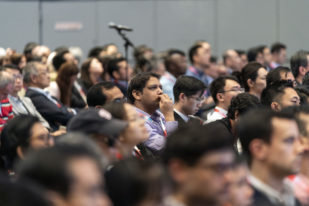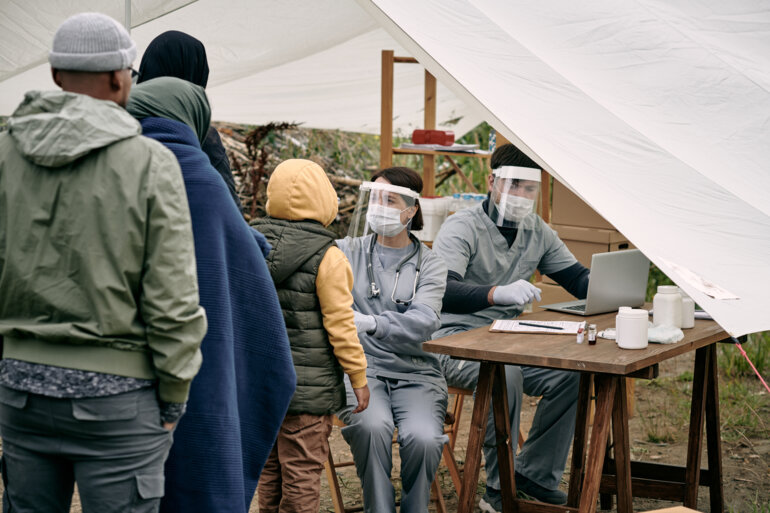Many studies presented at the Congress hint at promising treatments for rare sarcomas but access to effective treatments remains a challenge
Advances in cancer research and the regulatory approval of new agents do not usually progress at the same speed, thus resulting in promising treatments that are not yet available to patients. This is especially true for sarcomas and rare cancers in general, for which many off-label medicines have demonstrated promising results at ESMO Congress 2019, but the use of which in daily practice remains uncertain.
Numerous barriers may interfere in the approval process, including safety issues, as is the case with pexidartinib, a colony-stimulating factor 1 (CSF1) receptor inhibitor that has demonstrated clinical benefit in patients with tenosynovial giant cell tumour (TGCT), a rare and locally aggressive neoplasm for which there is no approved therapy. Yesterday, a hepatic toxicity summary for pexidartinib revealed 4 serious but non-fatal hepatic toxicities, which resolved within 1–7 months showing that with liver test monitoring pexidartinib may offer a relevant treatment option (Abstract 1696P).
"The liver toxicity observed with pexidartinib is generally reversible,” says Prof. Silvia Stacchiotti from Fondazione IRCCS Istituto Nazionale dei Tumori, Milan, Italy, commenting on the analysis of the selective CSF1 receptor, KIT and FLT3-ITD inhibitor, which included 140 patients across multiple studies. "Its activity is a major achievement in this very debilitating orphan disease, which observational studies suggest is associated with long-term impaired quality of life and chronic pain in around half of patients, most of whom are young adults.”Stacchiotti—who is an investigator in pexidartinib trials—also highlights that the medicine is not approved for any condition and consequently is not available in Europe, which is still awaiting its approval for compassionate use. "Our hope is that the European Medicines Agency will expedite approval and that its use can be harmonised to ensure equal and contemporaneous access across European countries,” she says.
In a Proffered Paper Session yesterday, other studies were presented that highlighted the further barriers in accessing off-label medicines in sarcoma. Results from the soft-tissue sarcoma cohort of IMMUNOSARC, a collaborative Spanish–Italian sarcoma group phase I/II trial of sunitinib plus nivolumab, showed that the combination was active in the small group of 50 patients, with a progression-free survival rate of 50% at 6 months (Abstract 1669O). However, although very promising, these early findings raise the broad issue for rare cancers of how the results from investigator-initiated trials (IITs), like this one, can be translated into clinical practice. In fact, IITs are not recognised by regulatory bodies for approval purposes. "Pharmaceutical company interest in trials needs to be stimulated and this is not always achievable, particularly for agents that are nearing patent expiry,” she says.
Another study—the phase II, randomised REGOBONE study of regorafenib in relapsed bone sarcomas—reported progression-free survival rates lower than had been anticipated (Abstract LBA88). This presentation will fuel the debate on how good is good enough in terms of clinical benefit to allow a treatment to be available to all patients. "The activity of regorafenib in this trial may not be extraordinary but it will not be considered negligible for the many patients with relapsed disease who currently have no other treatment options,” says Stacchiotti. "Of course, bone sarcomas represent a series of different diseases with different sensitivities to treatment, so we need to identify which of these respond best to regorafenib. But the biggest problem with regorafenib and, at least in Italy, with all antiangiogenic medicines is that it is not available for bone sarcomas outside clinical trials. Clinicians should have the opportunity to offer this active treatment to selected patients, balancing the possible benefits with the cost of treatment.”
Accessibility problems in the sarcoma setting are no different when it comes to newly tested approaches. In a study presented yesterday, it was revealed that the use of a novel cryoablation technique for progressing desmoid tumours brought different accessibility problems. It was described as an alternative to the watchful waiting approach usually adopted for this benign but often locally aggressive condition. The phase II study in 50 patients met its primary endpoint of a non-progressive disease rate of 86% at 12 months (Abstract 1668O); 63% and 83% of patients had better functional and pain scores, respectively. "The lack of a requirement for regulatory approval means that access to this type of therapy can be easier than for a medical treatment,” says Stacchiotti. "However, the need for expert practitioners means that cryotherapy is unlikely to be available to most patients.” While the data look interesting, this potential therapeutic approach needs to be investigated further, particularly with regard to comparison with other treatments.
The lack of requirement for regulatory approval of a novel cryoablation technique for progressing desmoid tumour could result in easier access to therapy than for medical treatment.
Stacchiotti concludes, "Providing access to treatments for rare cancers involves advocating for greater, more equal access to off-label treatments, which currently shows wide variation in availability across European countries. The discrepancies in availability particularly disadvantage patients in lower-income countries. In addition, we need to encourage pharmaceutical companies to get involved in regulatory clinical trials, and we need to educate regulators about these rare diseases, the challenges they pose for patients and the urgent requirement for novel, active therapies.”
ESMO Congress 2019 abstracts:
- LBA88 - Results of the randomized, placebo (PL)-controlled phase II study evaluating the efficacy and safety of regorafenib (REG) in patients (pts) with locally advanced (LA) or metastatic relapsed chondrosarcoma (CS), on behalf of the French Sarcoma Group (FSG) and UNICANCER
- 1669O - IMMUNOSARC: A collaborative Spanish (GEIS) and Italian (ISG) sarcoma groups phase I/II trial of sunitinib plus nivolumab in advanced soft tissue and bone sarcomas: Results of the phase II- soft-tissue sarcoma cohort
- 1696P - Pexidartinib (Pex) for locally advanced tenosynovial giant cell tumour (TGCT): Characterization of hepatic adverse reactions (ARs)
- 1668O - CRYODESMO-O1: A French nationwide phase II study on cryoablation in progressing desmoid tumour (DT) patients (pts)






